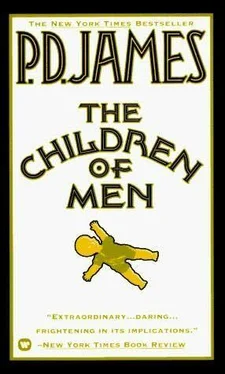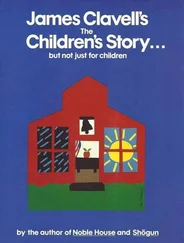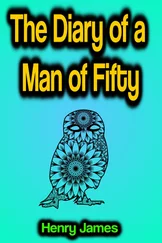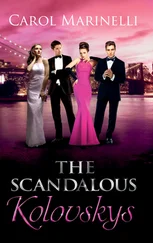“Your father has to go back into hospital today.”
“Get those schoolbooks out of the sitting-room and go upstairs before the doctor comes. He’ll be wanting to talk to me.”
She would speak with eyes averted, as if there was something embarrassing, even indecent, about the disease, which made it an unsuitable subject for a child. Or was this a deeper secrecy, a shared suffering, which had become an essential part of their marriage and from which I was as rightly excluded as I was from their marriage bed? I wonder now whether my father’s silence, which seemed at the time a rejection, was deliberate. Were we alienated less by pain and weariness, the slow draining away of hope, than by his wish not to increase the anguish of separation? But he can’t have been so very fond of me. I wasn’t an easy child to love. And how could we have communicated? The world of the terminally ill is the world of neither the living nor the dead. I have watched others since I watched my father, and always with a sense of their strangeness. They sit and speak, and are spoken to, and listen, and even smile, but in spirit they have already moved away from us and there is no way we can enter their shadowy no-man’s-land.
I can’t now remember the day he died except for one incident: my mother sitting at the kitchen table, weeping at last tears of anger and frustration. When, clumsy and embarrassed, I tried to put my arms round her, she wailed: “Why do I always have such rotten luck?” It seemed then to that twelve-year-old, as it seems now, an inadequate response to personal tragedy, and its banality influenced my attitude to my mother for the rest of my childhood. That was unjust and judgemental, but children are unjust and judgemental to their parents.
Although I have forgotten, or perhaps deliberately put out of mind, all but one memory of the day my father died, I can recall every hour of the day he was cremated: the thin drizzle that made the crematorium gardens look like a pointilliste painting; the waiting in the mock cloister until an earlier cremation was over and we could file in and take our places in those stark pine pews; the smell of my new suit; the wreaths stacked up against the chapel wall; the smallness of the coffin—it seemed impossible to believe that it actually held my father’s body. My mother’s anxiety that all should go well was increased by the fear that her baronet brother-in-law would attend. He didn’t, and neither did Xan, who was at his prep school. But my aunt came, too smartly dressed, and the only woman not predominantly in black, giving my mother a not-unwelcome cause for complaint. It was after the baked meats of the funeral feast that the two sisters agreed I should spend the next summer holiday at Woolcombe and the pattern for all subsequent summer holidays was established.
But my main memory of the day is its atmosphere of suppressed excitement and a strong disapproval which I felt was focused on me. It was then that I first heard the phrase reiterated by friends and neighbours who, in their unaccustomed black, I hardly knew: “You’ll have to be the man of the family now, Theo. Your mother will look to you.” I couldn’t then say what for nearly forty years I have known to be true. I don’t want anyone to look to me, not for protection, not for happiness, not for love, not for anything.
I wish that my remembrance of my father was happier, that I had a clear view, or at least some view, of the essential man which I could take hold of, make part of me; I wish that I could name even three qualities which characterized him. Thinking about him now for the first time in years, there are no adjectives which I can honestly conjure up, not even that he was gentle, kind, intelligent, loving. He may have been all of these things, I just don’t know. All I know about him is that he was dying. His cancer wasn’t quick or merciful—when is it merciful?—and he took nearly three years to die. It seems that most of my childhood was subsumed in those years by the look and the sound and the smell of his death. He was his cancer. I could see nothing else then and I can see nothing else now. And for years my memory of him, less memory than reincarnation, was one of horror. A few weeks before his death he cut his left index finger opening a tin and the wound became infected. Through the bulky lint-and-gauze bandage applied by my mother seeped blood and pus. It seemed not to worry him; he would eat with his right hand, leaving his left resting on the table, gently regarding it, with an air of slight surprise, as if it were separate from his body, nothing to do with him. But I couldn’t take my eyes from it, hunger fighting with nausea. To me it was an obscene object of horror. Perhaps I projected on to his bandaged finger all my unacknowledged fear of his mortal illness. For months after his death I was visited by a recurrent nightmare in which I would see him at the foot of my bed pointing at me a bleeding yellow stump, not of a finger but of a whole hand. He never spoke; he stood mute in his striped pyjamas. His look was sometimes an appeal for something I couldn’t give, but more often gravely accusatory, as was that pointing. It seems now unjust that he should for so long have been remembered only with horror, with dripping pus and blood. The form of the nightmare, too, puzzles me now that, with my amateur adult knowledge of psychology, I attempt to analyse it. It would be more explicable had I been a girl. The attempt to analyse was, of course, an attempt at exorcism. In part it must have succeeded. After I killed Natalie he visited me weekly; now he never comes. I am glad that he has finally gone, taking with him his pain, his blood, his pus. But I wish that he had left me a different memory.
Today is my daughter’s birthday, would have been my daughter’s birthday if I hadn’t run her over and killed her. That was in 1994, when she was fifteen months old. Helena and I were living then in an Edwardian semi-detached house in Lathbury Road, too large and too expensive for us, but Helena, as soon as she knew she was pregnant, had insisted on a house with a garden and a south-facing nursery. I can’t remember now the exact circumstances of the accident, whether I was supposed to be keeping an eye on Natalie or thought that she was with her mother. All that must have come out at the inquest; but the inquest, that official allocation of responsibility, has been erased from memory. I do remember that I was leaving the house to go into College and backing the car, which Helena had clumsily parked the previous day, so that I could more easily manoeuvre it through the narrow garden gate. There was no garage at Lathbury Road but we had standing for two cars in front of the house. I must have left the front door open and Natalie, who had walked since she was thirteen months, toddled out after me. That minor culpability must have been established at the inquest, too. But some things I do remember: the gentle bump under my rear left wheel like a ramp but softer, more yielding, more tender than any ramp. The immediate knowledge, certain, absolute, terrifying, of what it was. And the five seconds of total silence before the screaming began. I knew that it was Helena screaming and yet part of my mind couldn’t believe that what I was hearing was a human sound. And I remember the humiliation. I couldn’t move, couldn’t get out of the car, couldn’t even stretch out my hand to the door. And then George Hawkins, our neighbour, was banging on the glass and shouting, “Get out you bastard, get out!” And I can remember the irrelevance of my thought, seeing that gross, anger-distorted face pressing against the glass: He never liked me. And I can’t pretend that it didn’t happen. I can’t pretend it was someone else. I can’t pretend I wasn’t responsible.
Читать дальше












